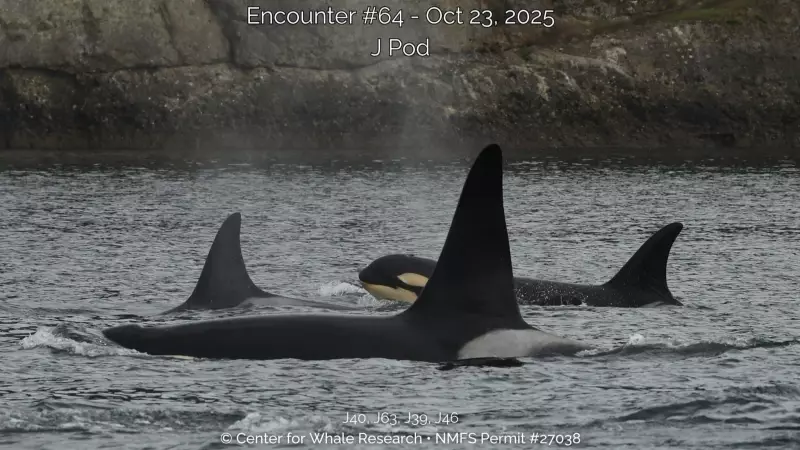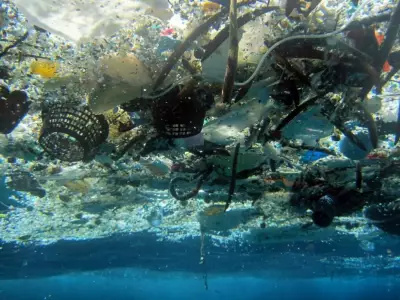
In a devastating development for marine conservation, researchers have confirmed that a newborn Southern Resident killer whale calf is missing and presumed dead. The tragic news comes just weeks after the calf's birth brought hope to the critically endangered population.
The Center for Whale Research announced this week that the calf, designated J61, was last seen alive on Christmas Day near the San Juan Islands. Despite extensive searches by researchers and whale watching crews, the young orca has not been spotted since, leading scientists to conclude it has likely perished.
A Critical Loss for an Endangered Population
This loss represents more than just a single tragedy—it's another significant setback for the Southern Resident killer whales, whose numbers have dwindled to just 74 individuals across all three pods. Each new calf represents vital genetic diversity and hope for the population's survival.
The calf was born to 36-year-old J36, also known as Alki, who was seen swimming with her newborn during the Christmas Day sighting. Researchers noted the calf appeared healthy and active during that final observation, making its sudden disappearance particularly puzzling and heartbreaking.
Pattern of Loss Continues
This isn't the first time the Southern Resident community has experienced such losses. Approximately 40% of calves born to this population don't survive their first year, highlighting the immense challenges these whales face.
Several factors contribute to these high mortality rates, including:
- Scarce salmon populations, their primary food source
- Increasing ocean noise disrupting hunting and communication
- Pollution and contaminants in their habitat
- Stress from boat traffic and human disturbance
Conservation Efforts More Critical Than Ever
The loss of J61 underscores the urgent need for continued and enhanced conservation measures. Researchers and conservation groups are calling for:
- Increased protection for Chinook salmon populations
- Stricter regulations on vessel traffic in critical habitats
- Accelerated efforts to reduce ocean pollution
- Enhanced monitoring and research funding
This tragic event serves as a stark reminder that despite ongoing conservation efforts, the Southern Resident killer whales remain in a precarious position. The loss of even one calf represents a significant blow to the genetic diversity and future prospects of this iconic Pacific Northwest species.





